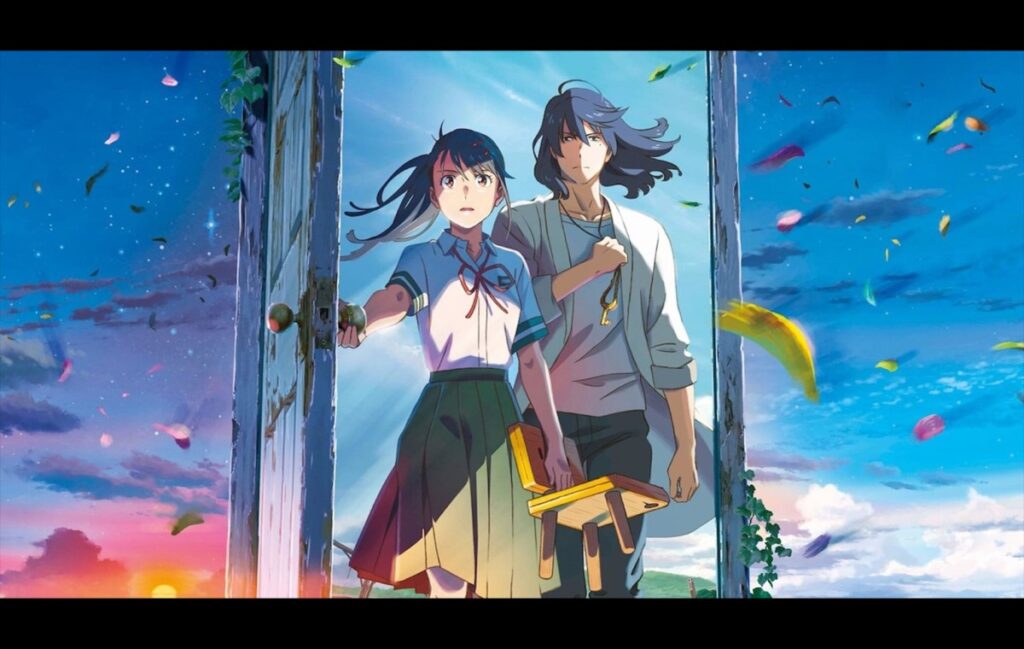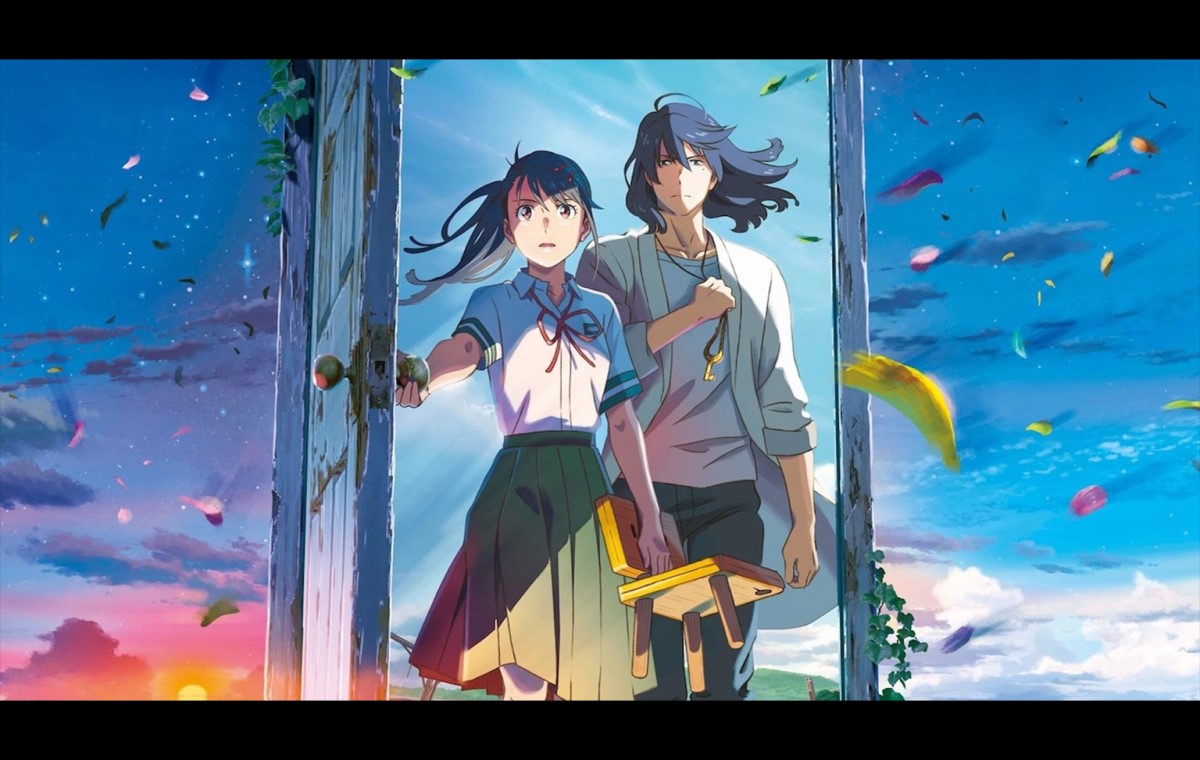With the Clouds
In essence, the song masterfully expresses emotional fragility, hope, and human connection through skillful natural imagery, sensitive metaphor, and poetic language. It invites listeners into a contemplative space where loneliness is gently soothed by the enduring warmth of compassionate bonds and hopeful promises, all set against Noda’s musical composition, evocative of Shinkai’s animated films.
Whenever I listen to a new song, my attention usually gravitates toward the lyrics. While a compelling melody, memorable riffs, soaring high notes, and catchy hooks all contribute to a song’s unique charm, I’ve always believed the lyrics are its most essential element.
Yet, I was actually curious about the musical composition of Jin’s A Journey with the Clouds, as it was crafted by Japan’s Yojiro Noda, whom I consider a musical genius. Noda composed the soundtracks for three of my favorite Japanese animations from the past decade—Your Name (君の名は), Weathering with You (天気の子), and Suzume (すずめの戸締まり)—all directed by Makoto Shinkai, widely hailed as this generation’s Hayao Miyazaki. Anyone familiar with Shinkai’s films and their evocative soundtracks will recognize that familiar resonance in this song. (On a side note, Noda is famously selective about collaborating with other artists, yet he seems to have formed a strong and trusting artistic partnership with Jin.)
Suzume (すずめの戸締まり)

Still, because lyrics hold a special significance for me, I usually read them before listening to avoid being influenced by musical elements. After all, songs are essentially poetry set to music. Think of Paul Simon: his songs for Simon and Garfunkel are poetry accompanied by acoustic guitar. Kendrick Lamar received a Pulitzer Prize, and Bob Dylan was even awarded the Nobel Prize in Literature. Among all the songs on Jin’s Echo album, I was most moved by the lyrics of A Journey with the Clouds.
Given that Jin wrote much of the song himself and that J-Hope named it his favorite from the album, it’s evident Jin poured considerable effort into creating these lyrics. The song beautifully symbolizes a relationship characterized by tenderness and fragility, yet also resilience, of sacrifices willingly made to ensure an everlasting bond. Perhaps, as one of my students suggested after hearing it, Jin is reflecting metaphorically on his own enduring journey with ARMY.
Jin’s lyrics unfold gently, weaving together themes of vulnerability, connection, comfort, and enduring promises amid loneliness and uncertainty. Throughout the song, Jin and his co-writers, including Noda, employ vivid, poetic imagery drawn from nature—clouds, rain, stars, and wind—to symbolize inner emotional landscapes, effectively capturing the delicate essence of human emotions and relationships.
At the song’s opening, clouds serve as metaphors for emotional burdens and liberation alike:
“구름은 오늘도 내 전부를 담아 끝없이 이어지는 하늘 여행해“ (“The clouds, today as well, carry all of me on an endless journey across the sky”). These lines suggest a surrender of self to something vast and eternal, reflecting a willingness to embrace life’s uncertainties. The imagery evokes a gentle yet deep sense of wandering and introspection.
The chorus beautifully encapsulates the universal fear of loss and the hesitation to reach out due to perceived fragility, highlighting the Jin’s emotional vulnerability. Equally significant is the concept of enduring promises, portrayed vividly in perhaps my favorite line of the song:
“영원히 소멸되지 않는 약속의 단어를 만들자,” literally translated as “Let’s create a word that means our promise will never perish.”
- 영원히 (young-won-hee) – forever
- 소멸되지 않는 (so-myul-dwe-jih aht-neun) – does not perish
- 약속의 (yahk-sohk-eui) – promise
- 단어를 (dahn-uh-leul) – a word
- 만들자 (mahn-deul-jah) – let’s make
I translate this line as, “Let us craft a word for a promise that will never perish.” This captures the human desire for permanence amid the transient nature of existence, emphasizing the comforting power of commitment and meaningful words.
Furthermore, in the chorus, Jin suddenly addresses a child (아이야, literally meaning “Oh, child”). Rather than speaking to an actual child, Jin uses this as a metaphor to depict the vulnerability and timidity of the person or people he addresses. The full line reads, “서툴게 손을 대면 사라질까 겁을 낸 아이야“ (“Oh, fearful child, afraid all will vanish at my timid touch”). I especially appreciate Jin’s use of the word “서툴게” (awkwardly, clumsily). Here, it conveys uncertainty; the fear that, if Jin reaches out hesitantly or without confidence, everything might simply disappear.
Another poetic expression in the chorus emerges through compassionate rain imagery:
“네 슬픔이 담긴 눈물이 비라면 기꺼이 적셔 다 가져갈게 새하얀 네 마음이 검게 물들지 않도록“ (“If your sorrowful tears fall as rain, I will gladly soak them all away, so your pure white heart stays unstained.”). This metaphor connects rain and tears with deep empathy, offering emotional shelter and purification from pain. The striking contrast between purity (“새하얀 네 마음,” meaning “your pure white heart”) and darkness (“검게”) emphasizes a protective desire to preserve innocence and emotional clarity.
Equally poignant are the second-verse lines that portray the enduring warmth and gentleness of a loved one’s presence:
“부드럽게 곁에서 속삭이는 소리 은은하고 따스하게 건네는 손길“ (“A voice whispering tenderly close, a touch gently warm.”). The subtle and tender language here evokes intimacy and comfort, illustrating how true reassurance often comes through quiet gestures rather than grand declarations.
An image of hope and mutual comfort is captured beautifully in the first pre-chorus:
“잔잔한 하늘 속을 떠도는 우리 둘이 언젠간 밝은 날을 함께 꿈꾸기로 해, 영원히“ (“We drift together through tranquil skies, promising someday to dream of brighter days, forever.”). This passage embodies optimism, intimacy, and the resilient strength of shared dreams and lasting relationships, even amid solitude and uncertainty.
In essence, the song masterfully expresses emotional fragility, hope, and human connection through skillful natural imagery, sensitive metaphor, and poetic language. It invites listeners into a contemplative space where loneliness is gently soothed by the enduring warmth of compassionate bonds and hopeful promises, all set against Noda’s musical composition, evocative of Shinkai’s animated films.
Lyrics:
Verse 1:
The clouds, today as well, carry all of me
on an endless journey across the sky.
The sunset glow, the star-lit night—
my quiet heartbeat grows ever louder.
Standing alone at the edge of loneliness,
uncertain of where I should go,
within the frozen silence,
your gentle whisper, the voice that holds me.
Pre-Chorus:
In the faint traces
left among hazy clouds,
did I leave them there?
Or are they your raindrops?
We drift together
through tranquil skies,
promising someday
to dream of brighter days, forever.
Chorus:
Oh, fearful child,
afraid all will vanish at my timid touch,
let us craft a word for a promise
that will never perish.
If your sorrowful tears fall as rain,
I will gladly soak them all away,
so your pure white heart stays unstained,
like the day we began.
Verse 2:
A voice whispering tenderly close,
a touch gently warm,
my trembling breath full of excitement,
this sweet warmth spreads and grows.
Pre-Chorus 2
Held gently within
faded memories,
your cherished touch
slowly colors me.
Over the traces left
at the tip of passing winds,
quietly moving me to tears,
a whisper gently guiding me.
Chorus:
Oh, fearful child
afraid all will vanish at my timid touch,
let us craft a word for a promise
that will never perish.
If your sorrowful tears fall as rain,
I will gladly soak them all away,
so your pure white heart stays unstained,
like the day we began.
I had originally planned to translate A Journey with the Clouds and To Today’s Me together, but since I got home late after a night out with friends—and because A Journey with the Clouds took longer to analyze and translate than expected (as you can see, it kept growing!)—I’ve decided to do the songs separately. I’ll upload my translation of To Today’s Me tomorrow. See you then, my friends!

